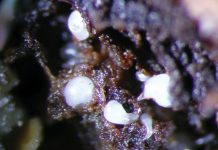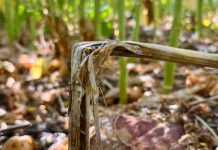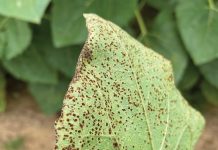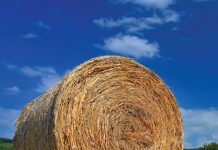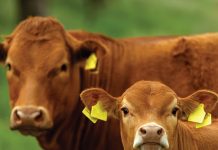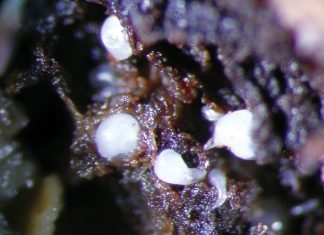For the second year, once again with a competition record (5,4 t/ha), Clinton Frey from the farm Doveton near Winterton was crowned the winner in the category for soybeans in KwaZulu-Natal in Grain SA’s 2021 Grow for Gold competition.
This year he won with Pioneer’s P 71T74R and realised an even higher yield per hectare. He obtained 7,2 kg of soybean grain/mm of rain and his variable cost of planting this particular variety and field was R2 221,69/ton or R12 000/ha. The cost included inputs such as seed, chemicals, fertiliser, fuel and labour with fertiliser and chemicals the most expensive. The average yield on the farm for this specific hybrid was 4,5 t/ha.

On the Doveton and Habanerra farms, the Frey family produces maize and soybeans in summer and wheat and potatoes in winter under irrigation. They also have pecan nut trees. The four farms are approximately 20 km apart, resulting in different soil types and varying rainfall during the season.
According to Clinton, the biggest challenge he had to cope with during the past season was the climate. ‘It was a hot year with a lot of late rain and this necessitated me to be more organised. I had to upgrade our equipment to deal with some of the challenges.’ On the particular 80-ha field where the P 71T74R variety was planted, he received 750 mm for the season.
Most of the soil on the Frey farms are of a loam clay type with some variations. Soil samples are taken every second year on the fields under irrigation and every third year on the dryland fields. All soil corrections are done with full precision in accordance with the results obtained from the soil analysis and the fertiliser and lime are applied at variable rates across the fields according to these results. Leave samples are taken throughout the season and if needed, additional fertiliser or foliar feeds will be applied. From lime to seeding time they applied 200 kg KCl and 150 kg MAP.
‘We use harvest data in addition to the soil and leave analyses to determine seeding rates. This year we also planted variable seed ratings. Variable seed ratings enable us to plant higher densities on our better soils and in the higher potential areas in a field, but at the same time we can adapt our planting to lower densities on lower potential areas,’ Clinton says.
The maize and soybeans are cultivated in a Roundup Ready system for weed control. On the fields where they are on a no-till system, Clinton will do a burndown before planting. Thereafter, they will follow up with a pre-emergence application and later in the season, a post-emergence spray with glyphosate together with fungicides and foliar feeds to offset micronutrient shortages. On the fields that are cultivated, they will follow a pre-emergence and post-emergence weed management programme. Clinton uses various herbicides with different modes of action as part of his weed resistance management programme.
From flower pod onset or R1 stage, he will do a fungicide as well as an insecticide application specifically to control bollworm. He uses Amistar Xtra and Ampligo combined with a foliar nutrition product such as Phytogard Ca and Sett to stimulate flower pod set.
Clinton plants his own trials on farm and believes there are substantial benefits. ‘I am able to evaluate new hybrids on my farm according to my practices and determine what will work here. It helps with making informed decisions regarding hybrid selection.’
He feels that he can still improve, especially regarding costs in relation to profit, and wants to grow more and achieve higher yields with less inputs.
Clinton believes that you cannot go into a new season without proper and detailed planning. ‘Apart from planning before each season, one has to look at the conditions of your soil as well as weather predictions before making the final decisions. My staff are also a crucial component of my operation. I need them. Without them I will not be able to get everything done.’
He adds that his late father was a mentor and example to him in his personal life as well as on the farm. His advice to the younger generation is to do proper research before embarking on something new. ‘Ask questions and obtain as much information as possible. Talk to other producers, read about the topic or new crop.’
Clinton also thinks it is beneficial to share information and to learn from others. ‘There are no real secrets in agriculture or in farming. But you need to see what works on your soil, on your farm and what fits in with your personality and management practices. If farming is your calling and if it really is what you want to do, there are many ways of getting assistance and support. At the end of the day, it is what you put in and how you make it work for you.’



